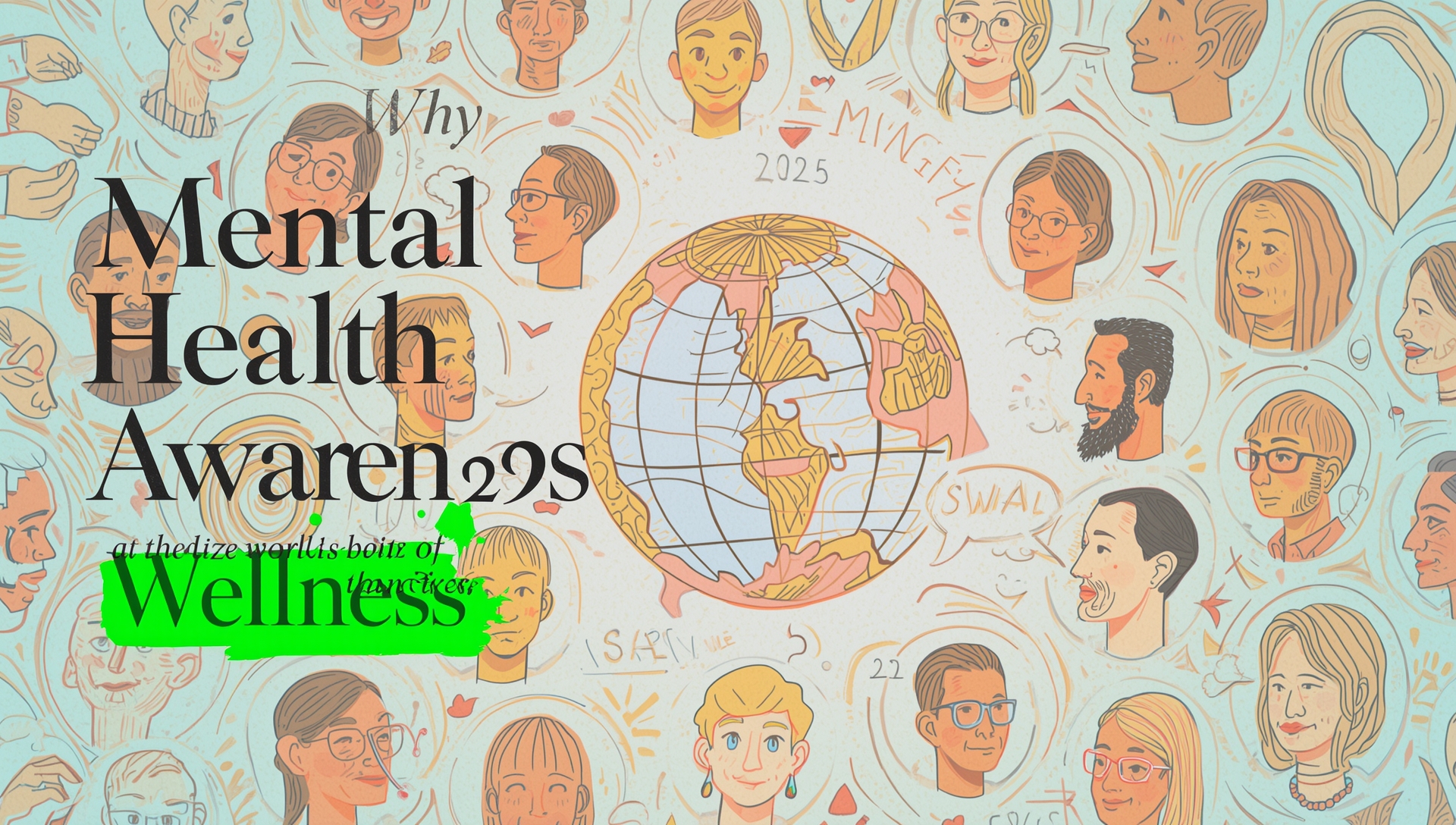Mental Health Awareness in 2025: Why the World Is Talking About Wellness More Than Ever
In 2025, mental health awareness has surged from a quiet conversation to a global priority, resonating across workplaces, schools, and social platforms. Over a billion people worldwide live with mental health conditions, a number that highlights the scale of this issue. Depression and anxiety alone drain economies by trillions annually through lost productivity, making mental wellness not just a personal concern but a financial one. As we grapple with post-pandemic effects, economic pressures, and global uncertainties, the world is talking about wellness more than ever because ignoring it is no longer sustainable. For those in the high-stakes finance niche, where stress and burnout are common, this movement offers tools to boost resilience and sharpen decision-making.
The finance industry, known for its intense demands, stands to gain immensely from this wellness revolution. Financial professionals face market swings, client expectations, and regulatory pressures, all of which can fuel anxiety. By weaving mental health strategies into financial planning and workplace cultures, individuals and firms can achieve better outcomes. This article dives into the drivers behind the 2025 mental health boom, its economic ripple effects, and actionable insights for finance professionals seeking balance in a high-pressure world.
The Global Surge in Mental Health Dialogue
Mental health awareness in 2025 is a full-blown movement, fueled by data and advocacy. Events like Mental Health Awareness Month in May have gone global, with campaigns offering free planning guides, walks, and virtual runs to reduce stigma and expand access to care. The push is clear: awareness must lead to action. Younger generations, especially Gen Z, are driving this shift. Surveys show over 60% of Gen Z report poor mental health monthly, compared to under 30% of Boomers. Shaped by social media, economic instability, and global crises, they demand proactive solutions like early intervention and personalized care.
Social media platforms amplify these conversations. Community events, such as mental health runs and awareness walks, are gaining traction worldwide, encouraging open discussions. Posts online stress the importance of mental health literacy as a foundation for education, reflecting a broader cultural shift toward destigmatizing these issues. This openness is reshaping how we view wellness, making it a priority across all sectors, including finance.
Economic Impacts: The Hidden Cost of Ignoring Mental Health
In the finance niche, mental health’s economic toll is undeniable. Untreated mental health issues are projected to cost economies hundreds of billions in 2025, factoring in lost productivity, healthcare costs, and absenteeism. Investing in mental health interventions could unlock trillions in economic value by 2050 by restoring healthy, productive years.
Financial stress often worsens mental health, creating a cycle that hits finance professionals hard. Economic pressures like inflation and job insecurity heighten anxiety and depression, with money cited as a top stressor for many. In finance, where long hours and high stakes are the norm, over a third of workers report feeling stressed more than half their days. This impacts performance, leading to higher turnover, reduced innovation, and even costly errors in trading or compliance.
On the flip side, prioritizing mental health pays off. Companies with robust wellness programs see improved retention and productivity. For finance professionals, a clear mind enhances judgment, reducing risky decisions and boosting long-term success. Ignoring mental health isn’t just a personal loss—it’s a financial one.
Workplace Wellness in the Finance Sector
The finance industry’s high-pressure culture is getting a wellness overhaul in 2025. Rising healthcare costs are pushing firms to rethink mental health benefits, with a focus on meeting employees’ and families’ growing needs. Tailored programs, like stress management workshops and resilience training, are becoming standard in banking and finance to address sector-specific pressures.
Financial and mental wellness are deeply linked. Debt and economic volatility can erode emotional well-being, impacting workplace performance. Yet, stigma persists: a quarter of finance workers don’t feel safe discussing mental health at work. Comprehensive programs that combine financial counseling with therapy are breaking this barrier, showing that addressing both yields better results. Firms adopting these see lower absenteeism and higher engagement, proving wellness is a smart investment.
Innovations and Trends Shaping 2025 Wellness
In 2025, mental health innovations are transforming how we approach wellness. Digital health tools, including AI-driven therapy apps, are on the rise, offering personalized support and trauma-informed care. The wellness market, now worth trillions, is fueled by demand for functional nutrition, mindfulness, and longevity-focused solutions, with younger generations leading the charge.
In finance, apps for stress tracking and mindfulness are gaining popularity. Trends like digital minimalism—reducing screen time to combat isolation—are also emerging. Psychologists are adapting, focusing on future-shaping innovations like early intervention and holistic care. These advancements make mental health support more accessible, especially for busy finance professionals juggling demanding schedules.
The Finance-Mental Health Nexus: Breaking the Cycle
Financial anxiety in 2025 is a double-edged sword, harming both mental and physical health. Economic volatility fuels burnout, pushing more people toward therapy as costs rise. For finance professionals, this means weaving wellness into client advice—promoting strategies like emergency funds to buffer stress.
Addressing mental health inequities is also critical. Without action, disparities in access will drive up costs across sectors. Robust financial wellness programs, which include mental health support, improve job satisfaction and overall well-being. By breaking the cycle of financial stress and mental strain, finance professionals can build resilience and advise clients more effectively.
Conclusion: A Call for Action in 2025
Mental health awareness in 2025 is reshaping how we live, work, and thrive. The world is talking about wellness because the costs of silence—personal, professional, and financial—are too steep. For the finance niche, this means championing workplace programs, integrating wellness into financial planning, and normalizing help-seeking. Prioritizing self-care isn’t a sign of weakness; it’s a strategy for strength. By investing in mental health, we save time, money, and energy, paving the way for a more resilient future. The time to act is now—your wellness journey can start today.
